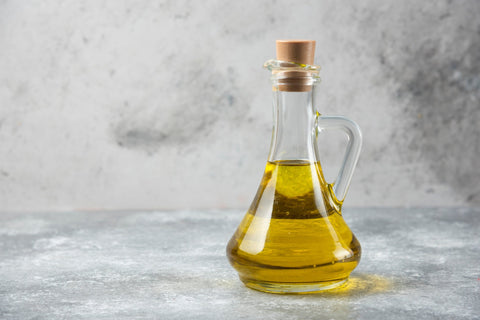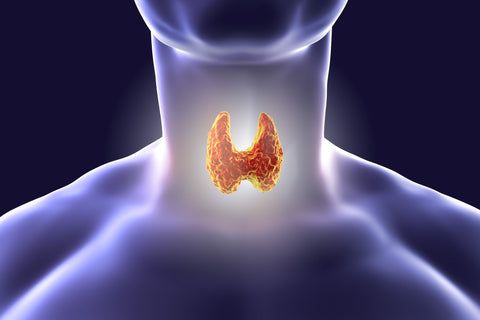Evening Primrose is a wildflower that grows in eastern and central North America and has been used since centuries for food. It wasn’t until recently that evening primrose oil was discovered to have amazing health benefits for hormone health, skin, hair and bones. The evening primrose oil is produced when the seeds of the flower are gathered and cold pressed; the oil is then encapsulated for dietary supplement use.
The evening primrose oil is high in essential fatty acids which are necessary for human health, but the body can’t make them. Therefore, the only way to obtain them is through food or supplements.
Our body needs a healthy balance of essential fatty acids, such as omega-6, found in evening primrose, and omega-3, found in fish oil. These fatty acids act as carriers for important fat-soluble vitamin A, vitamin D, vitamin E and vitamin K, and are also needed for the conversion of carotene to vitamin A, for mineral absorption and for a host of other processes.
The omega-6 fatty acids found in evening primrose oil provide the building blocks for cell membranes and a variety of hormones and hormone-like substances. Along with omega-3 fatty acids, omega-6 plays a crucial role in brain function, as well as normal growth and development.
Due to its highly rich nutrient content evening primrose oil has a range of therapeutic properties. It’s known to help reduce the pain associated with PMS and improve chronic skin complaints like eczema, acne and psoriasis.
The oil could also be used as an anti-inflammatory agent and is known to be helpful for menopause symptoms, arthritis and so much more!
Benefits of Primrose Oil
Hormones (PMS + Menopause)
Women around the world take evening primrose oil to naturally treat PMS symptoms because of its essential fatty acid content. Getting enough omega-6 fatty acids, such as Linoleic Acid (LA) and Gamma-Linoleic Acid (GLA), is shown to support overall hormonal function within the body.
PMS symptoms such as: breast tenderness, bloating, water retention, acne, depression, irritability, foggy thinking and headaches are caused by hormonal imbalances. In a study done by Schäfer and Kragballe (1991) it was suggested that abnormal lipid and fatty acid pattern may be involved in the pathogenesis of the PMS, and further suggested that this should be targeted with highly nutritious fatty acid supplements such as evening primrose oil.
The use of evening primrose oil in menopause use is also on the rise because of its ability to balance hormones and improve unwanted menopause symptoms. In 2013, the results of a randomized clinical trial which looked at the effects of evening primrose oil on 56 menopausal women (aged 45–59 years), was published.
These women took two 500 milligram capsules of evening primrose oil or a placebo every day for a total of six weeks. The researchers then compared hot flashes between the two groups and found that oral evening primrose oil decreased the intensity of hot flash attacks and decreased the life disruption that results from these attacks (Farzaneh et al., 2013).
Fertility
GLA found in evening primrose oil has been shown to increase the production of cervical mucus, an important factor for successful reproduction. Cervical fluid is vital for allowing the sperm to swim freely through the cervix. Having a healthy pregnancy is more difficult for women with little or no cervical fluid because the sperm have trouble moving and there may not be a friendly environment for the sperm to sustain themselves.
The high levels of essential fatty acids present in evening primrose oil have a direct effect on uterine cells. These essential fatty acids cause the contraction and relaxation of muscle tissue; this tones the uterine muscles in preparation for pregnancy. Consuming evening primrose oil for its fatty acid content is best only when naturally trying to conceive— not for women who are already pregnant because the contraction of the uterus may be problematic at that point.
An animal study done at the Department of Animal Nutrition and Management included male and female blue foxes that were given evening primrose oil during mating season in order to measure its effect on reproductive performance. An interesting result was an increase in litter size, mainly as an effect of male treatment, which might indicate that evening primrose oil benefits go beyond the uterus and have an impact on semen quality as well (Tauson & Forsberq, 1991).
Acne
Hormonal acne can be troublesome for many people, especially teenagers who are dealing with fluctuating hormones during puberty. A hormonal imbalance can lead to acne in teens and adults alike. This is especially true for women because they go through regular periods of hormone fluctuations during menstrual cycle and menopause.
The best way to treat hormonal acne is to balance hormonal levels naturally. Getting a proper balance of omega-3 fatty acids and omega-6 fatty acids from healthy sources (like evening primrose oil) may help to overcome and prevent acne. Numerous studies have revealed that clinical imbalances of specific essential fatty acids are associated with a variety of skin problems including acne (Pappas, 2009). Another publication by Downing et al. (1996) suggested that the sebum of acne patients is relatively deficient in linoleic acid.
Skin Health
Evening primrose oil has proved to be a valuable treatment choice for people suffering from skin conditions, such as eczema, psoriasis and atopic dermatitis. Studies published in the International Journal of Cosmetic Science have even shown that evening primrose oil can help with age-related structural and functional changes in skin tissues, such as redness, firmness, roughness and fatigue resistance (Muqqli, 2005).
Eczema is generally caused by an allergic response to foods, chemicals or other substances, such as perfumes or soaps; it causes dry, red, itchy skin that can blister or crack. Research shows that people with eczema don’t have the normal ability to process fatty acids; this results in a deficiency of gamma-linolenic acid, or GLA. GLA is an omega-6 fatty acid that the body can convert to substances that reduce inflammation and cell growth. Studies prove that evening primrose oil is remarkably effective in relieving many symptoms of eczema, including itching and redness.
Psoriasis occurs when skin cells replicate too quickly, which results in swollen patches under the skin covered with whitish scales on top. The scaly patches, also known as psoriatic plaques, are areas of inflammation and excessive skin production. The cause of psoriasis includes hormonal changes, poor diet and difficulty digesting protein. Evening primrose oil can be beneficial in the treatment of psoriasis because the essential fatty acids contribute to hormone balance and digestion.
Hair Loss
Hormones in both men and women are responsible for many bodily processes. When it comes to hair, hormones play a significant role. When hormones are off balance, the hair tends to be dry and thinning.
For example, women with thyroid imbalances, new mothers, or menopausal women may experience hair loss due to a drop in levels of oestrogen.
Androgen hormones like testosterone and DHEA are the major hormones that dictate hair growth. In women, the ovaries and adrenals are responsible for producing these hormones from cholesterol.
An excess in these hormones can lead to unwanted hair growth on the face and body, but not having enough can lead to thinning and dull hair. The benefits of evening primrose oil in hair loss are due to its anti-inflammatory properties. In a study done by Senapati et al. (2008), evening primrose oil helped with boosting hair growth while improving hair quality.
Rheumatoid Arthritis and Osteoporosis
Rheumatoid arthritis is an autoimmune disease in which the body’s immune system attacks its own healthy tissues. The cause of rheumatoid arthritis is a combination of genetic, environmental and hormonal factors.
Some studies show that primrose oil may be a suitable natural remedy for rheumatoid arthritis. One study done by Arthritis Research UK measured the effects of evening primrose oil on 49 people.
The data found that 94 percent of participants who got evening primrose oil reported a significant improvement of disease-related symptoms, including pain and morning stiffness (Belch & Hill, 2000).
Osteoporosis is when small holes or weakened areas are formed within the bones which can lead to fractures and pain. Some studies propose that people who don’t get enough of some essential fatty acids are more likely to have bone loss than those with normal levels of these fatty acids.
Taking evening primrose oil, along with fish oil and calcium, seems to decrease bone loss and increase bone density in elderly people with osteoporosis. In one controlled trial, women either took a placebo or six grams of a combination of evening primrose oil and fish oil along with 600 milligrams of calcium every day for a total of three years.
The women who took evening primrose, fish oil and calcium had zero spinal bone loss in the first 18 months and an impressive 3.1 percent increase in spinal bone mineral density during the last 18 months (Wan et al., 2014).
Reference
- Belch, J.J., Hill, A. (2000). Evening primrose oil and borage oil in rheumatologic conditions. American Journal of Clinical Nutrition. 71(1), 352-366.
- Downing, D.T., Stewart, M.E. et al. (1996). Essential fatty acids and acne. Journal of Dermatology. 6(14), 221–225.
- Farzaneh, F., Fatehi, S. et al. (2013). The effect of oral evening primrose oil on menopausal hot flashes: a randomised clinical trial. Archives of Gynaecology and Obstetrics. 288(5), 1075-1079.
- Muqqli, R. (2005). Systemic evening primrose oil improves the biophysical skin parameters of healthy adults. International Journal of Cosmetic Science. 27(4), 243-249.
- Pappas, A. (2013). The relationship of diet and acne. Dermato Endocrinology. 1(5), 262–267.
- Schäfer,L., Kragballe, K. (1991). Supplementation with evening primrose oil in atopic dermatitis: Effect on fatty acids in neutrophils and epidermis. Lipids. 26(7), 557-560.
- Senapati, S., Banerjee, S. et al. (2008). Evening primrose oil is effective in hair loss: A randomized placebo-controlled trial. Indian Journal of Dermatology. 8(74), 447-452.
- Wan, L., Zhang, F. et al. (2014). EPO Promotes Bone Repair through Enhanced Cartilaginous Callus Formation and Angiogenesis. Plos One. 9(7), 102-110.
- Images: Cooking oil photo created by azerbaijan_stockers - www.freepik.com
Any information or product suggested on this website is not intended to diagnose, treat, cure or prevent any medical condition. Never disregard medical advice or delay in seeking it because of something you have read on this website. Consult your primary healthcare physician before using any supplements or making any changes to your regime.




